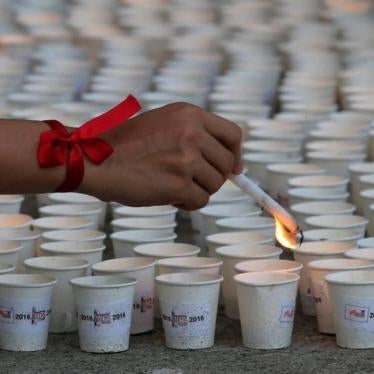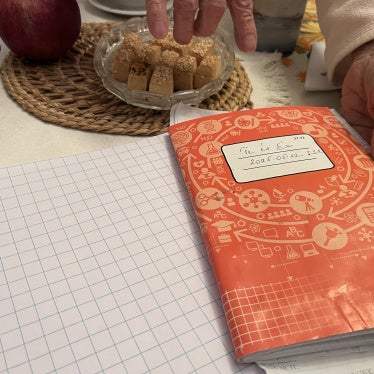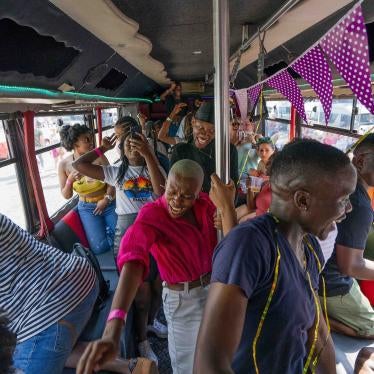Dear Dr. Kim,
We write in response to the World Bank’s Involuntary Resettlement Portfolio Review, and the Action Plan intended to address the findings of the Review, both released last month. As you have recognized, the findings of the Portfolio Review are deeply troubling. They reveal fundamental failures in the Bank’s safeguards system and are a matter of urgent public concern.
While it is important that the review of Bank-financed projects was undertaken and finally published, the lack of transparency demonstrated by the Bank in concealing the Review's findings - for three years in the case of part one and nine months in the case of part two - is unacceptable for a public institution. We are particularly disappointed that the Bank withheld the documents until after the consultation on the Bank’s proposed Environmental and Social Framework (ESF) had closed, given the importance of the findings to the review of the Bank’s safeguards.
While we welcome some of the provisions of the Action Plan such as increased budget and staff training, we do not believe that the Action Plan put forward by the Bank will be effective at addressing the numerous and serious failings of the safeguards system surfaced by the portfolio review:
- The Action Plan is not commensurate with the extent of systematic failure by Bank staff and Borrowers to comply with existing policy, procedures and contractual loan obligations on involuntary resettlement.
- Its reliance on the proposed ESF to solve the deep-seated structural flaws identified is misguided. The findings underscore many of the fundamental shortcomings of the proposed ESF highlighted by our organizations, including the lack of detail on required baseline data and socio-economic surveys and the over-reliance on borrower reports, among other weaknesses in the due diligence, monitoring and evaluation requirements on the Bank.
- It does not sufficiently incorporate measures to ensure accountability for achieving resettlement outcomes in line with the objectives of the Bank’s resettlement policy.
Finally, we are extremely concerned that the Action Plan does not set out to identify and provide redress to the individuals and communities that have been displaced by World Bank project teams without ensuring their reconstruction and rehabilitation. Under Bank policy and loan agreements, each of these individuals was, and remains, entitled to a set of protections and support to ensure, at a minimum, that they are not made worse off by the Bank project. Many of these people may well have been impoverished.
We urge the World Bank to respond to this institutional failure, and to bring itself into compliance with its mission and its operational policies and procedures, by identifying the people who have been displaced by Bank-financed projects and providing them with genuine sustainable development opportunities through a series of new grant-funded projects.
We urge you to consult with civil society and external experts on the Action Plan, including by convening an appropriate forum at which the authors of the Review present the findings and external stakeholders have an opportunity to discuss the implications and the necessary components of an effective, time-bound action plan, including the appropriateness of measures already committed to by the Bank. Implications of the Review’s findings for the second draft of the proposed ESF will be a pivotal part of the discussion.
We would appreciate the opportunity to discuss this issue with you further.
Yours sincerely,
|
Nicolas Mombrial |
Oxfam International |
Global |
|
Jessica Evans |
Human Rights Watch |
Global |
|
Theodore E Downing |
The International Network on Displacement and Resettlement |
Global |
|
Joan Carling |
Asia Indigenous Peoples Pact |
Thailand |
|
Chad Dobson |
Bank Information Center |
USA |
|
David Pred |
Inclusive Development International |
USA |
|
Jaybee Garganera |
Alyansa Tigil Mina (Alliance Against Mining) |
Philippines |
|
Fiu Mataese ELISARA |
Ole Siosiomaga Society Incorporated (OLSSI) |
Samoa |
|
Barbara Rose Johnston, PhD |
Center for Political Ecology |
United States |
|
Graeme Brown |
Southeast Asia Development Program |
Cambodia |
|
Arimbi heroepoetri |
DebtWatch Indonesia |
Indonesia |
|
Andrew Whitmore |
Indigenous Peoples Links (PIPLinks) |
United Kingdom |
|
Dr Joshua Curtis |
Irish Centre for Human Rights |
Ireland |
|
Sarom EE |
Sahmakum Teang Tnaut |
Cambodia |
|
Luiz Vieira |
Bretton Woods Project |
United Kingdom |
|
Korinna Horta, Ph.D. |
Urgewald |
Germany |
|
Okereke Chinwike |
Africa Law Foundation (AFRILAW)) |
NIGERIA |
|
Inês Martins |
La'o Hamutuk |
Timor-Leste |
|
Aly Sagne |
Lumiere Synergie Developpement |
Senegal |
|
Vanessa Torres |
Asociacion Ambiente y Sociedad |
Colombia |
|
Peter Bosshard |
International Rivers |
USA |
|
Keith Roberts |
Mayflower Church Global Justice Team |
USA |
|
Helen Tugendhat |
Forest Peoples Programme |
UK |
|
Nelson Nnanna Nwafor |
Foundation For Environmental Rights,Advocacy & Development FENRAD |
Nigeria |
|
Mariana González Armijo |
Fundar, Centro de Análisis e Investigación |
Mexico |
|
Roger Moody |
Nostromo Research |
England |
|
Bret Thiele |
Global Initiative for Economic, Social and Cultural Rights |
USA |
|
Javiera Valencia |
Fundación Terram |
Chile |
|
Claire McNeil |
ESCR Net |
Canada |
|
Pieter Jansen |
Both ENDS |
Netherlands |
|
Juan Martín Carballo |
FUNDEPS - Foundation for the Development of Sustainable Policies |
Argentina |
|
Natalie Fields |
Accountability Counsel |
USA |
|
Mark Cubit |
Planet Wheeler Foundation |
Australia |
|
Samin NGACH (Mr) |
Cambodia Indigenous Youth Association (CIYA) |
Cambodia |
|
Nurul Alam Masud |
Participatory Research Action Network- PRAN |
Bangladesh |
|
Tessa Khan |
Asia Pacific Forum on Women Law and Development |
Asia Pacific |
|
Sudha Reddy |
Eco Foundation for Sustainable Alternatives (EFSA) |
India |
|
Andrés Nápoli |
FARN |
Argentina |
|
Hozue Hatae |
Friends of the Earth Japan |
Japan |
|
Joseph Schechla |
Housing and Land Rights Network - Habitat International Coalition |
Egypt |
|
Pol Vandevoort |
11.11.11 - Coalition of the Flemish North-South Movement |
Belgium |
|
Astrid Puentes |
Interamerican Association for Environmental Defense (AIDA) |
Regional |
|
Michael Nanz |
FIAN Switzerland for the Right to Adequate Food |
Switzerland |
|
Drillisch, Heike |
GegenStroemung - CounterCurrent |
Germany |
|
Rohr, Johannes |
INFOE - Institute for Ecology and Action Anthropology |
Germany |
|
Saviour AKPAN Esq. |
Community Policing Partners for Justice, Security and Democratic Reforms |
Nigeria |
|
Shalmali Guttal |
Focus on the Global South |
Thailand |
|
Urantsooj Gombosuren |
Centre for Human Rights and Development |
Mongolia |
|
Thilak Kariyawasam |
Sri Lanka Nature Group |
Sri Lanka |
|
Megan Chapman |
Justice & Empowerment Initiatives - Nigeria |
Nigeria |
|
Maurice Ouma Odhiambo |
Jamaa Resource Initiatives |
Kenya |
|
Kate Watters |
Crude Accountability |
USA |
|
Elaine Zuckerman |
Gender Action |
USA |
|
Shulamith Koenig |
PDHRE, People's Movement for Human Rights Learning |
USA |
|
Derek MacCuish |
Social Justice Connection |
Canada |
|
Karen Orenstein |
Friends of the Earth US |
United States |
|
Marco Simons |
EarthRights International |
USA-Peru-Thailand-Myanmar |
|
Catherine Coumans |
MiningWatch Canada |
Canada |
|
Eang Vuthy |
Equitable Cambodia |
Cambodia |
|
Souparna Lahiri |
India Forum of Forest Movements (AFFM) |
India |
|
Annie Bird |
Rights and Ecology |
USA |
|
Stephanie Fried |
Ulu Foundation |
USA |
|
Manolinh |
LLG |
Laos |
|
Johan Frijns, Director |
BankTrack |
Netherlands |
|
Jocelyn Medallo |
Center for International Environmental Law |
USA |
|
Sor.Rattanamanee Polkla |
Community Resource Centre |
Thailand |
|
Dang Dinh Bach |
The Law and Policy of Sustainable Development Research Center |
Vietnam |
|
Jocelyn Medallo |
Center for International Environmental Law |
USA |
|
Sor.Rattanamanee Polkla |
Community Resource Centre |
Thailand |
|
Toshiyuki Doi |
Mekong Watch |
Japan |
|
Raquel Rolnik |
Former UN Special Rapportuer for Adequate Housing |
Brazil |
|
Judith Blau |
|
USA |
|
Andrea Rocca |
Italy |
|
|
Rebecca Shadwick |
UK |
|
|
Denise Bell |
USA |
|
|
Jessica Lyon |
Canada |
|
|
Jonathan Fox |
USA |
|
|
Erik Schnabel |
USA |
|
|
Dr Tom Griffiths |
|
UK |
|
Bastiaan Kluft |
|
Senegal |
|
Susan Randolph |
|
United States |
|
Carmen Márquez-Carrasco |
|
Spain |
|
Blen Hailu |
Ethiopia |
|
|
Joanne Bauer |
|
USA |
|
Fahd Reyaz |
United States |








